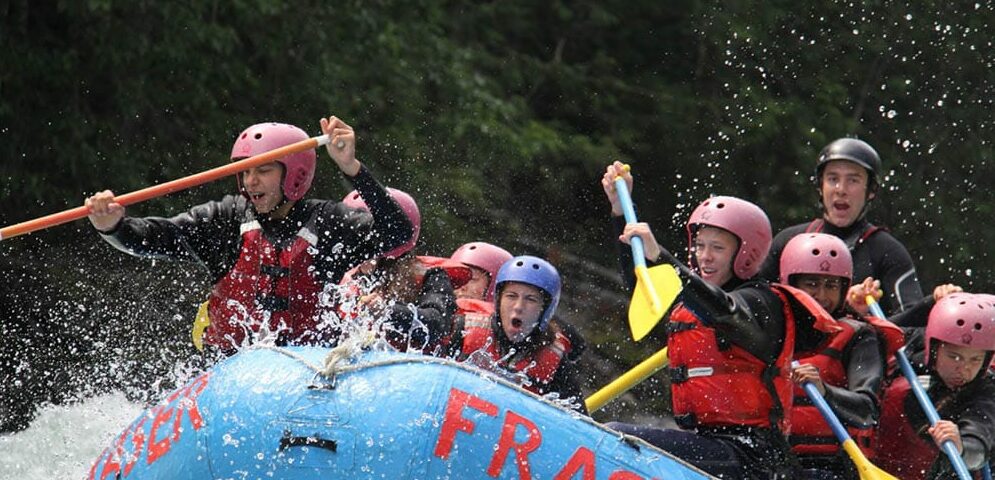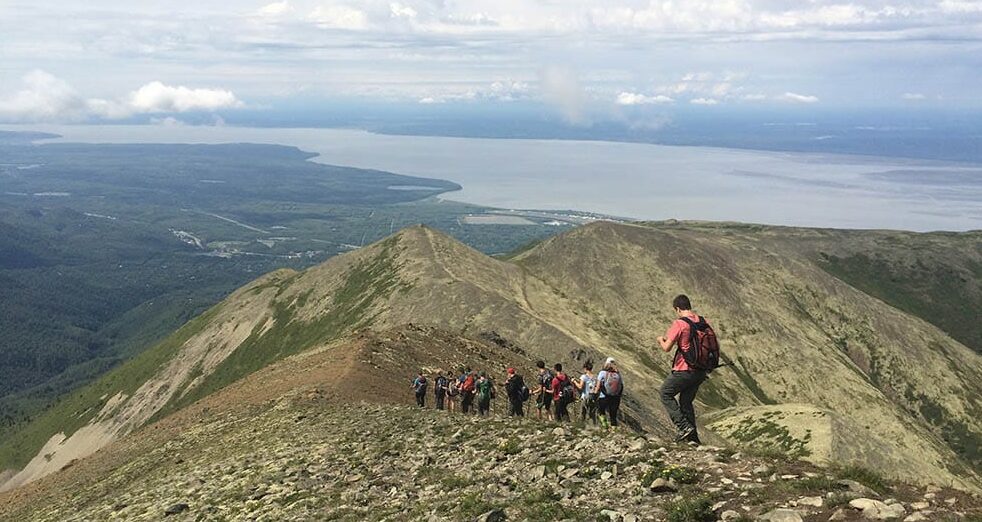
Many people ask us why we don’t offer community service trips, and specifically international ones, as part of our summer trip offerings. We could make a lot of money if we chose to do this. However, we would feel guilty making money on something we believe rarely accomplishes most of its intended goals.
Don’t get us wrong—we are firm believers in community service. Folks in our office are vitally engaged in our community, from volunteering for Big Brothers Big Sisters to serving on local and national environmental and conservation boards. We do this volunteer work on top of our real jobs, and we know many of our families carry similar commitments.
It all goes back to a theme I learned in college—think globally, but act locally.
Volunteerism on the local level has a powerful effect, even for middle and high schoolers. It costs nothing but time, and you can see the direct result of your actions. Teens who volunteer locally begin to understand how government and non-profit groups intersect to build effective, cohesive, and functional communities and care for vulnerable and disadvantaged citizens. Engaged local citizenry is the foundation of a democratic society and can build connections that last a lifetime. At a time when many students tend to be self-absorbed, through volunteering, they can discover new passions, build empathy, and discover how they can affect the causes they care about.
We do not see these same long-term benefits with international community service trips, also known as “voluntourism.” Demand for community service trips began in the early 2000s when many high schools started requiring community service hours in order to graduate. These same kids worked so hard during the year and then used summers to fulfill volunteer hour requirements. The belief and intention was that service would create “better kids” with a wider perspective. This coincided with a time when college admissions were becoming more competitive. Unique community service trips became perceived as a way to differentiate a college application. And a new summer industry was born.

Though we have watched many other programs shift their focus from outdoors to community service over the last 15 years, we’ve declined to follow the market. And here is why: All of the research and literature demonstrates that community service trips are rarely impactful on anyone but the individual taking the trip. (Unless the volunteer is bringing a specific skill to a community in need (doctor, engineer, or architect) or doing relief work after a natural disaster.)
Having read scholarly articles about the costs and benefits of voluntourism, below is the synopsis.
- The benefits disproportionately favor the volunteer rather than the community that is being helped.
- The lasting impact of most tasks performed by volunteers is often negligible and sometimes even negative.
- Members of local communities may find volunteer tourism offensive. (How would you feel if 20 “foreigner teens” descended on your neighborhood to “help?”
- These trips are expensive, and the benefits would often be greater if the participant stayed home and simply invested the tuition and travel money directly in an effective non-governmental organization (UNICEF, Doctors Without Borders, etc.) in the host country.
- A nonstop cycle of volunteers can promote a cycle of dependence in the host country.
- There is a big difference in the impact between skilled (doctors and engineers) and unskilled (teenagers) volunteers.
- This can promotes an unhealthy “western savior complex.”
Here are a few articles to consider from NPR, Reuters, Forbes, CNN, and Newsweek (there are many more out there).
Trips like these do serve the participants, if not the intended communities. They can indeed be “life-changing experiences.” But if a life-changing experience is what the participant seeks, we believe an outdoor adventure experience is a even more effective way to grow. Research (see this Columbia University article and this Washington Post article) also shows that college admissions departments feel the same way about voluntourism and give little credence to these paid community service experiences. (But they give a lot of credit to applicants who volunteer locally for causes about which the applicant is passionate.)
At Adventure Treks, young people grow in numerous ways. They gain confidence, independence, and resilience, and improve communication and collaboration skills. They gain the benefits of living and working in a close community and make friends from around the world. Arguably, these same goals could be obtained from a community service trip, but we feel our delivery system—the outdoors, tech-free, challenge through strenuous and new activities—is a far more effective vehicle for growth than a paid community service trip. And this is why we decline to do these community service trips. We want to do one thing, we want it to be highly effective, and we want to do it extremely well. For us, it’s outdoor education.